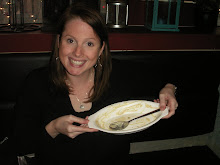Have you have any cultural shock the first week in Seoul?
Overall, I have experienced far less culture shock than I had anticipated. The time change was not as bad as I had expected, the food is great and the people are so nice and welcoming its hard to be shocked.
The one thing I would say was surprising is how welcoming people are to us as foreign exchange students/teachers. People are always trying to help us and get to know us. We have been assigned 10 buddies at Korea University who are here to support us and make sure we have activities to do and our experience here is great. I am surprised by the numbers of students who are willing to spend their free time helping us get acquainted with Seoul and South Korea. Everyone is so patient with my lack of language skills and are patient with me. I don't really feel like an outsider at all because people have been so willing to be open and friendly with me.
I think of course this may change as we get more acquainted with S. Korea, Seoul, and KU, but it has been a wonderful way to be greeted in a new city so far away from home.
What were some highlights of the week (cultural lessons and experiences)?
Namsangol Traditional Korean Village
Changdeokgung Palace
This week we went on a city tour and visited the Namsangol Traditional Korean Village and Changdeokgung Palace. Both places were very beautiful and we learned about Korean history. I wish we could have stopped at more locations and I think I will take the tour bus again so that I can visit other places along the way. There are 5 palaces in Seoul and I would like to see the other 4. We have also eaten a lot of Korean food, which has all been great.
What are your thoughts regarding your upcoming teaching experiences after visiting the schools and meeting the teacher (challenges, surprises, excitement, etc)?
I will be teaching at Seoul Global High School. We took a tour of the school and met the teachers. They were all very welcoming and kind. My co-teacher teaches World History and Korea History. The Principal met us and introduced us to the entire Korean faculty and gave us a gift.
The school is a very prestigious school for the smartest students in South Korea to come to study and live. Students take all of their classes in English. The level of their education seems to be very high. They are expected to take AP classes as after school activities. They also take International Law, International Economics, World History, Geography, among many other courses. The motto of the school is Scholastic Excellence, Honorable Character, Physical Strength. There are 10 other native English teachers who work at Seoul Global High School so that will be very comforting and helpful when we are feeling lost or unable to communicate with our co-teachers.
I am looking forward to observing classes and seeing what the students are learning and what types of resources they use in the classroom. The co-teachers said that they use a lot of different books, not just a typical textbook. Because they teach in English they have to order books specially for this school. I am also looking forward to meeting the students and getting to know them.
I think the biggest challenge will be meeting their high educational level and working in such a different environment from my internship.
Discuss also the biggest challenges facing you during student teaching and your time spent in Seoul.
I think the biggest challenge I will face regarding teaching is the very high level of education that these students are accustomed to learning. I hope that my background and experiences have prepared me enough to benefit the students. Another challenge may be working with two co-teachers. We have one homeroom teacher we will work with and one or two other teachers we will work with in our content area. The school day is longer than in the U.S. from 7:40-4:10. We will teach about 15 hours a week, which I think will turn out to be a lot considering each teacher there only teaches about 12 hours a week. We will be observing classes and mid-terms for about 2 weeks before we begin teaching our own classes so I hope that after that time I will have a better grasp on what and how to teach these exceptional students.




















